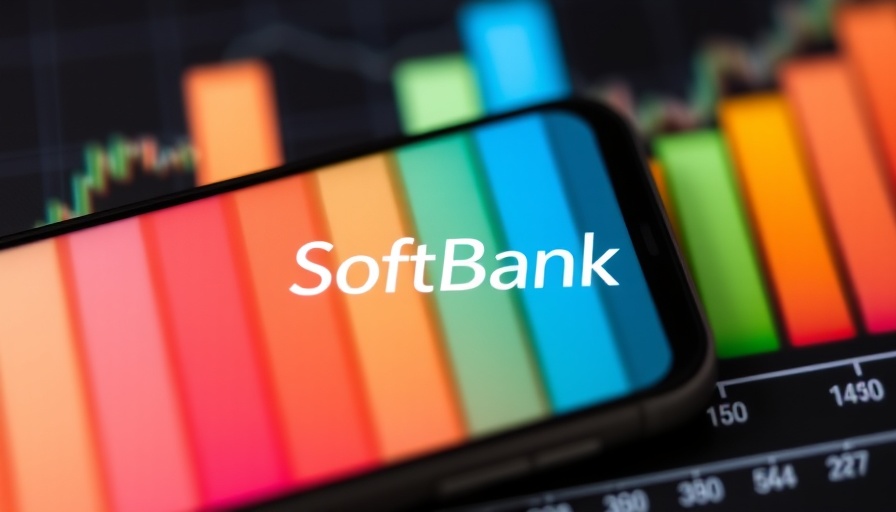
SoftBank's Strategic Shift Towards AI: A $16 Billion Gamble
SoftBank Group Corp., under the leadership of visionary CEO Masayoshi Son, is making headlines by planning a substantial $16 billion investment in artificial intelligence (AI). This move signifies a notable pivot from its historical focus on telecommunications and internet-related sectors towards the rapidly evolving AI landscape. As the demand for advanced AI technologies surges, SoftBank's bold financial commitment raises critical questions: Can the company effectively navigate the risks associated with such a substantial debt, and is this move a strategic investment or a shot in the dark?
Understanding the Financing Strategy
The financing strategy for this ambitious AI initiative is particularly intriguing. SoftBank plans to pursue project financing, a tactic typically associated with capital-intensive projects like oil and gas. This approach allows the company to spread the costs of its AI investments over time, minimizing the immediate financial burden and relying on projected cash flows from successful project implementation. This model reflects a shift in SoftBank’s risk management strategy, as the emphasis is on leveraging debt while maintaining a robust balance sheet.
The Significance of AI in Today's Market
The investment comes at a critical time when AI technologies are reshaping industries and promising new efficiencies. Major advances in machine learning, natural language processing, and computer vision are paving the way for unprecedented applications in business and consumer markets. By positioning itself at the forefront of AI, SoftBank aims not only to capture significant market opportunities but also to assert its relevance in the competitive technology space.
Collaboration to Mitigate Risks
SoftBank is keenly aware of the risks posed by high leverage and market volatility. Collaborative ventures with established entities like OpenAI can provide essential expertise and resources, thus reducing the risks associated with the company relying solely on its assets and capabilities. By diversifying partnerships, SoftBank can navigate market fluctuations more adeptly, combining its innovative prowess with the strengths of its collaborators.
The Broader Implications of SoftBank's AI Ambitions
SoftBank's long-term strategy directly addresses the growing impact of AI on our daily lives and global economy. As we witness technological transformation, sectors are increasingly investing in AI to enhance productivity and profitability. For SoftBank, its investment not only reflects a sound business move but also highlights the imperative for corporations to adapt in order to harness the potential of AI effectively.
Challenges Ahead: Risks and Considerations
While the prospects of SoftBank's venture into AI are exciting, they are not without considerable risks. Heavy reliance on project success to handle debt obligations can be precarious, particularly if initial projections do not come to fruition. Potential challenges include higher interest costs, cash flow constraints, and the threat to SoftBank’s reputation should projects fail to meet expectations. To counteract these challenges, careful financial planning and risk assessment will be essential predictors of success.
Future Predictions and Market Trends
Looking ahead, the challenges and opportunities within the AI industry suggest that SoftBank's investment could hold substantial promise—or peril. Industry trends indicate an escalating demand for versatile AI solutions, from automation in enterprises to enhanced consumer products. As AI continues to evolve, SoftBank’s calculated risk could either propel it to the forefront of innovation or leave it grappling with unsustainable debt. How it navigates this critical juncture will ultimately shape the future of not just the company, but the broader tech industry.
Your Role in the AI Revolution
For individuals and investors alike, SoftBank's multi-billion dollar commitment to AI sparks significant dialogue about the role of technology in society. As consumers and stakeholders, we have a stake in how technology is developed, funded, and implemented. Our engagement in discussions about technology—its implications, risks, and benefits—can shape the policies and directions these companies take. Exercising awareness and encouraging ethical considerations in AI development is crucial for creating a future that benefits everyone.
As SoftBank embarks on this bold new journey in the AI sector, the true test lies not only in financial metrics but in its ability to lead responsibly in an age defined by technological evolution.
 Add Row
Add Row  Add
Add 




 Add Row
Add Row  Add
Add 

Write A Comment